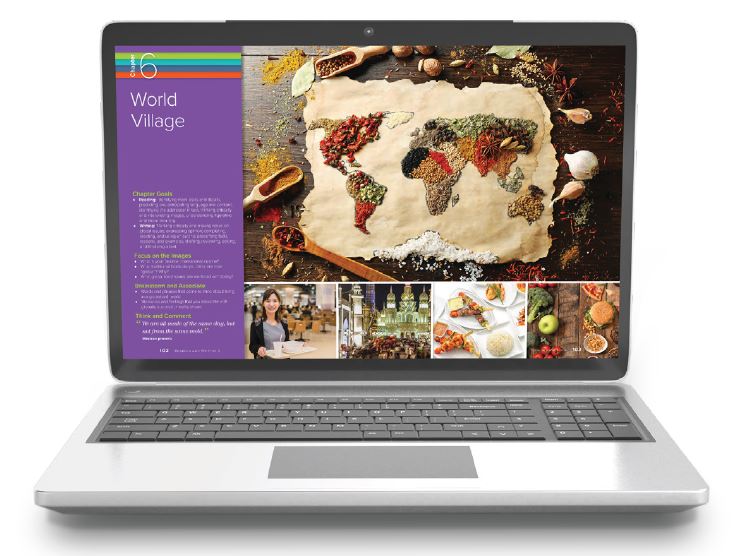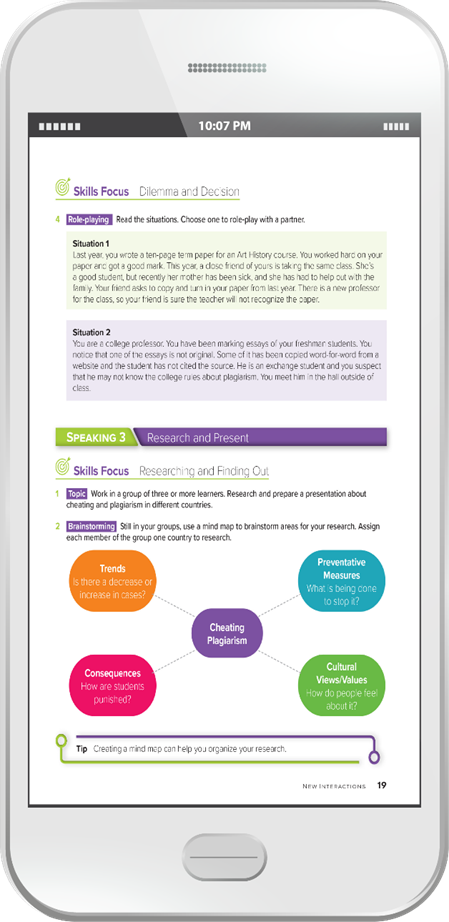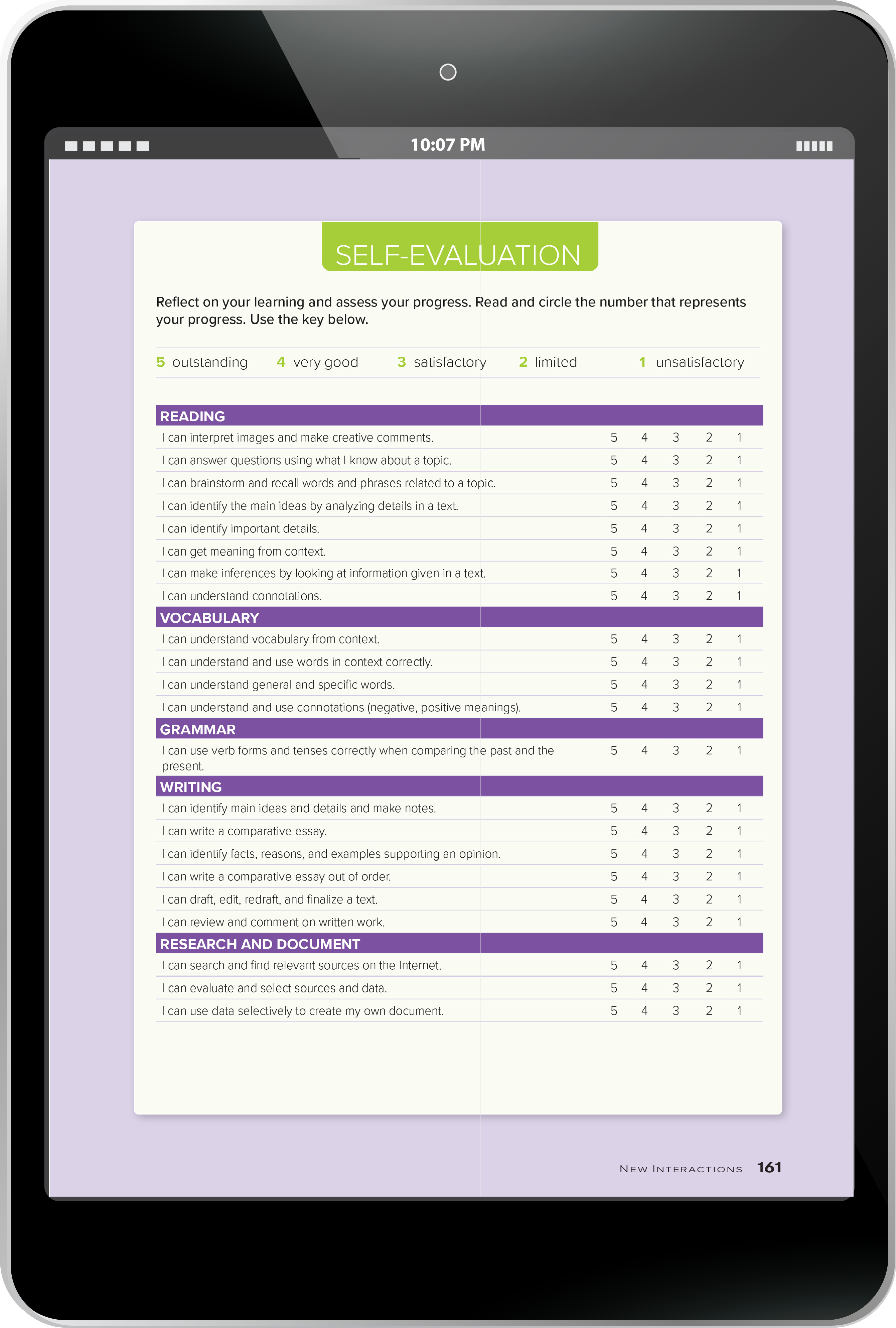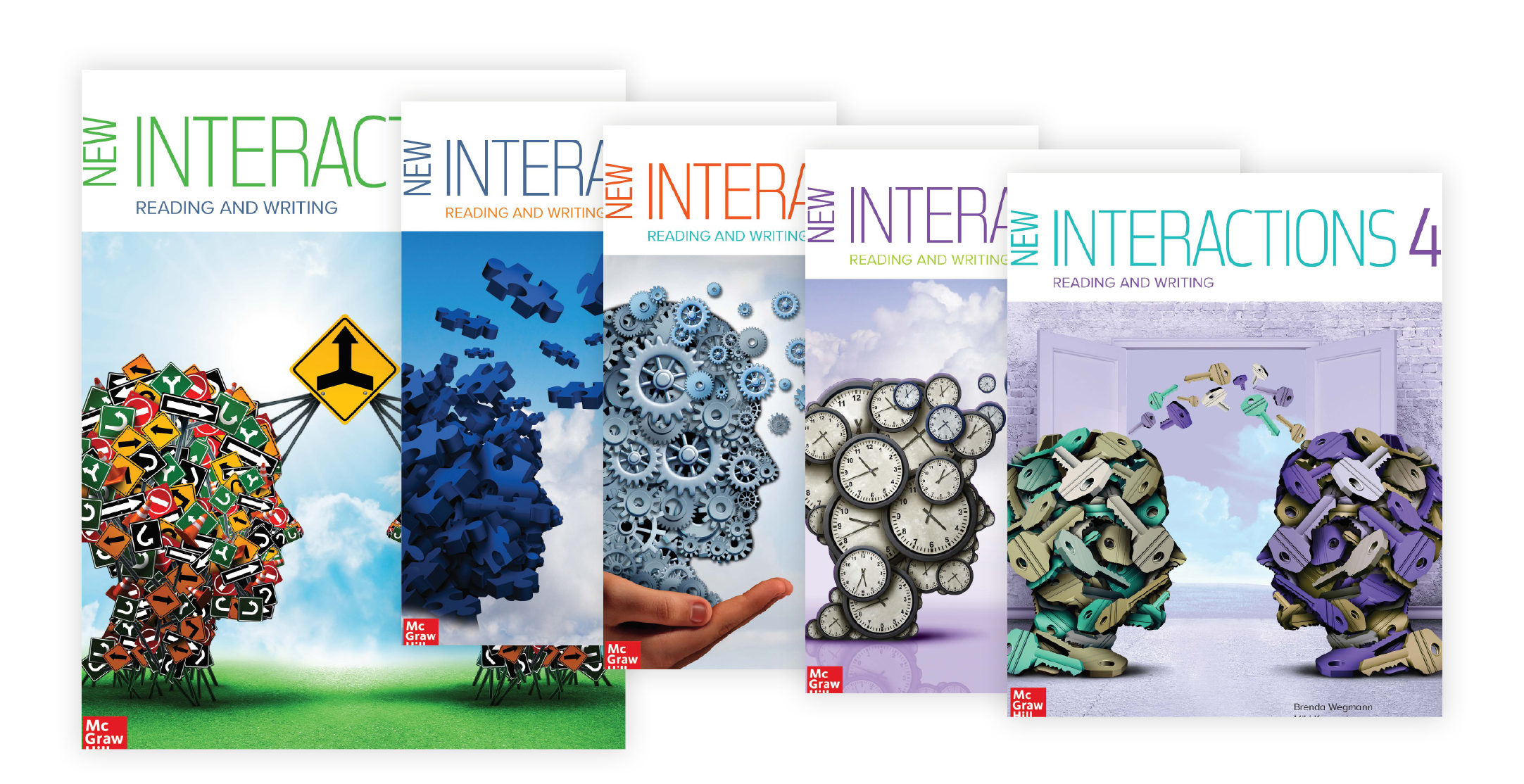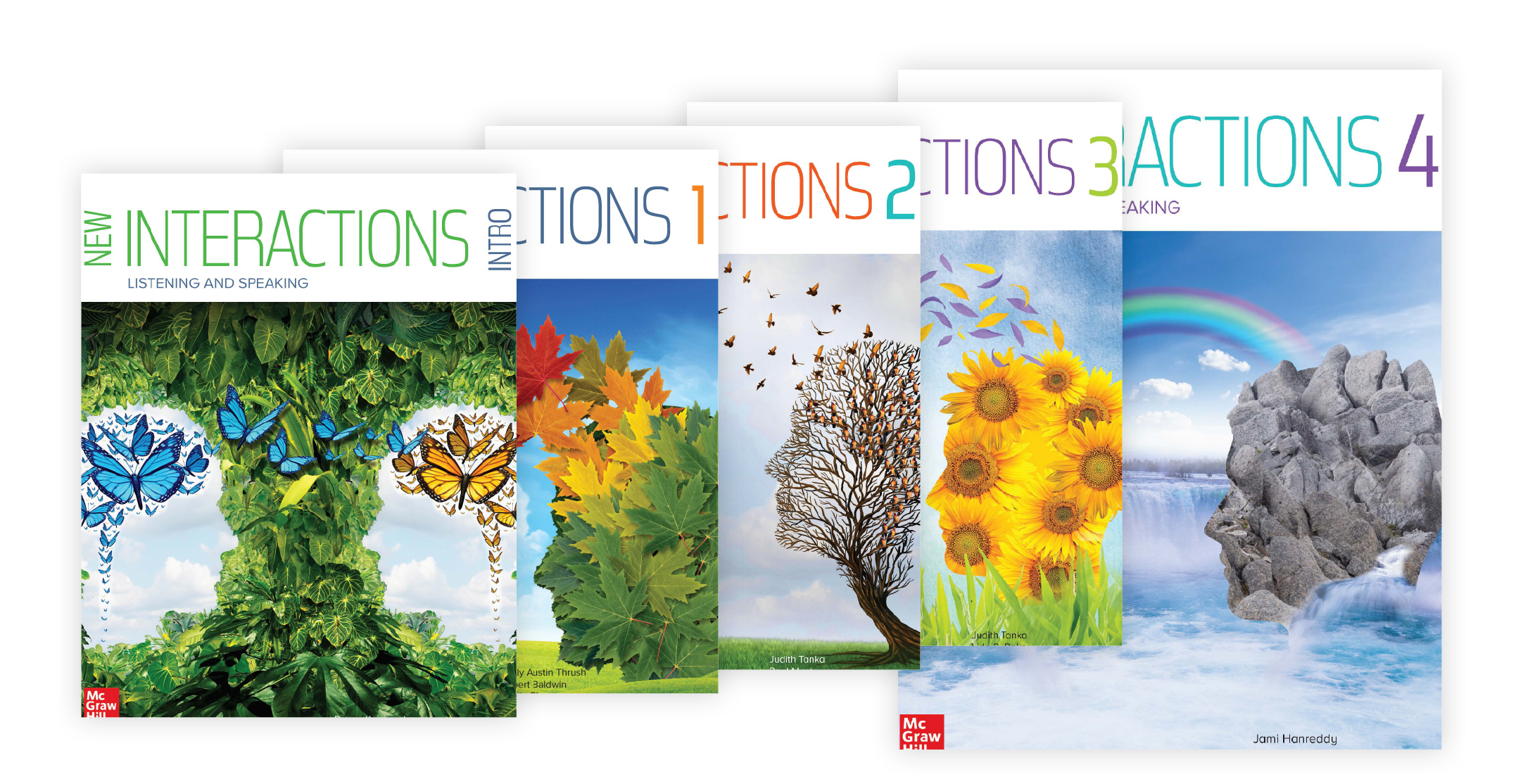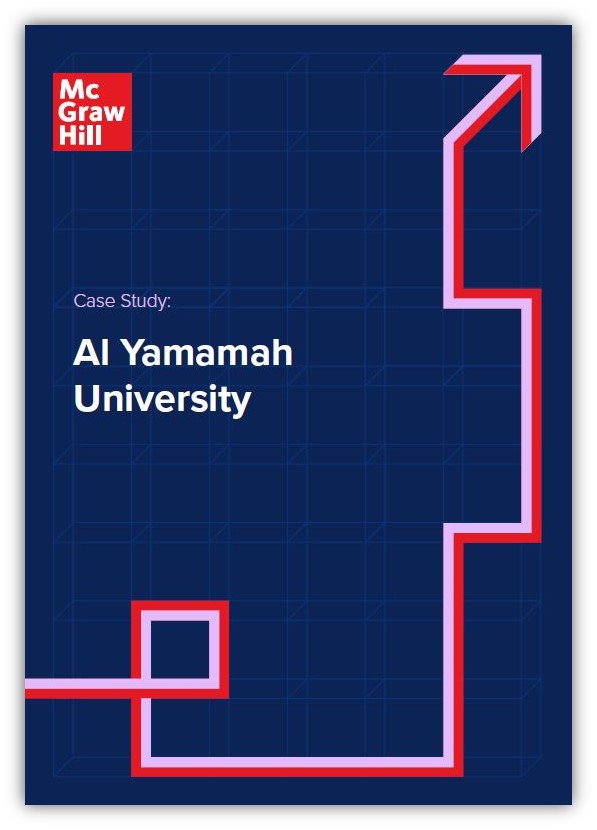

Globally, New Interactions has been one of the most recognized and respected EAP series since its initial creation almost 30 years ago. The course is built on solid pedagogy and best-practice principles, combined with ground-breaking technology provided by McGraw Hill’s award-winning Connect platform. New Interactions can be used with or without Connect, but the fully-integrated online course offers a truly rich, stimulating, and flexible environment that expands students' learning and supports teachers' teaching. Both language learning and academic skills’ development are fully supported with automatically graded practice, assessment tools, a bank of videos, and multiple assignment opportunities that enable students to practice and consolidate their learning
New Interactions features two strands, covering the complimentary receptive and productive skills involved in Reading & Writing and Listening & Speaking, exposing students to more materials and practice than integrated-skills books.
Sample chapters
Support for teachers
McGraw Hill is committed to ensuring our customers are comfortable using our products. To that end, we’ll be on hand to support you getting up-to-speed with New Interactions through:
- Product-orientation training
- On-site training*
- Professional development webinars
- A robust, in-depth Methodology Guide and Teacher Manual to help you get the most out of the suite of features New Interactions contains
*On-site training where resource is available.
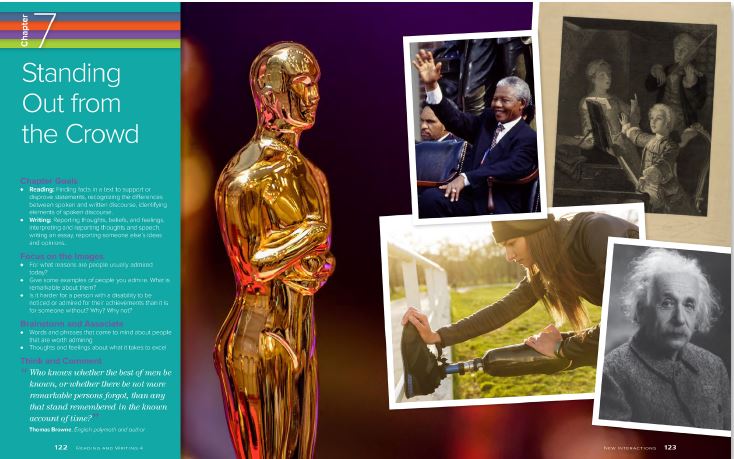

Tools to support diverse learners & build engagement
“It’s not just a textbook, it’s a teaching method!”
“I haven’t found something that allows for so much to be in one place. Like if you want to give extra work to your students – then you can! If you want to stretch your students – you can!”

Georgios Kormpas, Al Yamamah University
Georgios initially undertook the rollout of New Interactions with a small selection of students. Noting that the pilot was successful, Georgios then scaled up his implementation of New Interactions. He shared how New Interactions helped combat some of his challenges:
Modern and Engaging Content - “I could see that learners could relate to the content and the topics and I was impressed.”
Intuitive Digital Tools - “If they’re using digital, they don’t even need to have a printed copy of the book, which is great.”
Data and Reporting - He is frequently “checking their progress” and able to “send a reminder to those students who haven’t completed the activities."
Don't just take our word for it - Read this case study to know more about how New Interactions has supported Georgios' teaching and his students' learning.
6 Ways New Interactions addresses online learning issues
New studies have shown that students who participated in online learning retain six times more material than their class-based counterparts. However, although online learning is here to stay, it is not without its difficulties.
The 2021 school year had teachers improvising solutions to keep students engaged and learning while online. The patchwork assembly highlighted many of the challenges that teachers and students face while learning English online.
Keep reading to learn how New Interactions addresses online learning issues while providing hybrid solutions for every learning scenario.
Webinars
Foundation Programmes Post-COVID: Some Challenges and Solutions
This webinar tackles some of the key challenges foundation-year instructors, particularly English language professors, are facing as they transition from remote and hybrid learning to face-to-face learning. It addresses how to overcome the ‘lost’ months of high-school study and the skills that learners need beyond the English language and sometimes complex transition from school to the tertiary education environment.
21st Century Skills and Academic English Opportunties
In this webinar you will learn more about 21st century skills and how these skills can be integrated in English language learning. It will talk about the importance for students to acquire these skills and prepare them for the real world, especially for students in the foundation year or preparatory year programmes. The session will also cover some challenges experienced while introducing them in the learning context and explore solutions.
The Greening of ELT: An overview and some classroom ideas
This talk has two sections. In the first, Christopher Graham will look at some of the ways we contribute to the climate crisis through the ways we operate in our institutions and beyond, and suggest some ideas to reduce our negative impact on the environment. The second part of the talk will be led by Katherine Bilsborough who will look at the opportunities we have in our classrooms to explore and integrate climate-related themes into our teaching.

